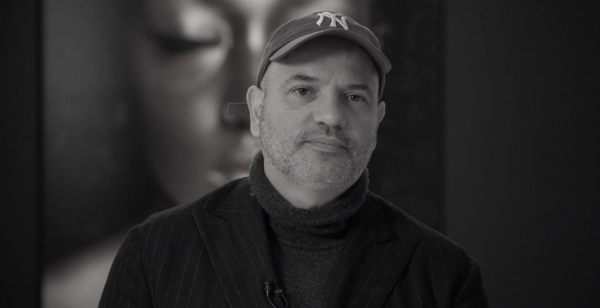The leading Greek singer unfolds her life in a deeply honest way, from her first memories in Thebes until the decision to stop singing and the discovery of a new field of exploration in the theatre. She describes how a song is born and talks about the need to move between genres and types of music, the frugality that is necessary in a rendition, talent and excitement...
Haris of Greece, our Haroula
By Christina Katsantoni
Translated by Alexandros Theodoropoulos
Stelios Kazantzidis characterised her voice as the best that Greece has ever produced. Grigoris Bithikotsis, when he first listened to her singing, commented that this voice has a pew in the Church. Thanos Mikroutsikos admired the fact that in her mouth the syllables come to life. Manos Hadjidakis defined her as an inexhaustible talent and another Manos, whose name she wanted to give to her son later, Manos Loizos said: “Her voice has the Greek streets and colour in it. This singer reflects Greece". Haris Alexiou is all that and much more…
She was born as Hariklia Roupaka and took her artistic surname from a friend of her brother, who was the occasion for her first appearances on stage. However, every Greek generation in the country or even abroad knows her as Haroula; familiar to everyone, without belonging to anyone. She is the voice that expresses the "inside us", connected with small and big moments of our life, with our desires and anxieties, with loves, separations or losses. She is the "ah" that accompanies us to joy and pain. She is the Haris of Greece, our Haroula; Brunette with red lips, fictional as well as true, earthy and exotic, with weaknesses and cracks that make her powerful.
The "gypsy" childhood years
The story of her life begins in Thebes. Her first recollections have the aroma of grapes and harvest, as her grandfather used to take her with him in the vineyard, and freshly baked bread from the numerous loaves baked by her grandmother. Haris Alexiou was born and raised in a refugee neighborhood, in a family that loved singing and walking on Sunday afternoons in the centre of Thebes for spoon sweets.
This way of life ended abruptly and hard after the illness and the loss of her father when she was just seven years old. Her mother took the two children and came to Athens. A new life began with limited resources and constant changes, which didn’t even allow her to make memories. She changed houses, schools and neighborhoods, something that made her feel she didn’t belong anywhere and nothing belonged to her. It was a sense of freedom and a "gypsy" attitude, which has followed her ever since.
Anarchy and austerity
As a child, she dreamed of simple things like a small home and a bed of her own. Growing up she wanted to go to University and study architecture. In architecture, when she accidentally sang one night, she did it thinking it was something amateur. But without any thought, she did it with her soul. And then, she found herself participating in the historical album "Asia Minor", and after that came Loizos and Spanos, one song was followed by another one, one album was followed by the next and her voice traveled around the world.
Haris Alexiou has many selves. One was happy within its anarchy, the other always built a narrow net. She has been both relaxed and strict and this complexity, this constant alternation, is visible in her singing career. From the very beginning, she sang ballads, folk, art and rebetika. She was never limited to one school, one genre, one repertoire. She moved comfortably from Kaldaras and Spanos, to Loizos, to Nikolopoulos, to Vardis, to Hadjidakis, to Mikroutsikos and to Antipas. Every new album was as if she mockingly winked at the previous one...
Theatre as a new "school"
Her status as a singer was so strong that she surpassed that of the creator of her own songs, 10 of which are included in the album Nefelis Street ‘88. For the album “Panselinos” she wrote the lyrics "I asked for everything in my life, I paid for it with my voice". But she considered it very personal and changed it: "I paid for it with my soul".
In June 2020, she announced her decision to stop singing, because she refuses to sing if she can’t do it well. It wasn’t something simple. She mourned about it, but she had to move forward. The scene, however, didn’t lose her. In theatre, she found a new school that helps her explore the questions that torment her, the "thorns" of herself, which in combination with the "velvet" compose the uniqueness of a really great artist, who asked for everything, gave everything and became the Haris of Greece, our Haroula.











































